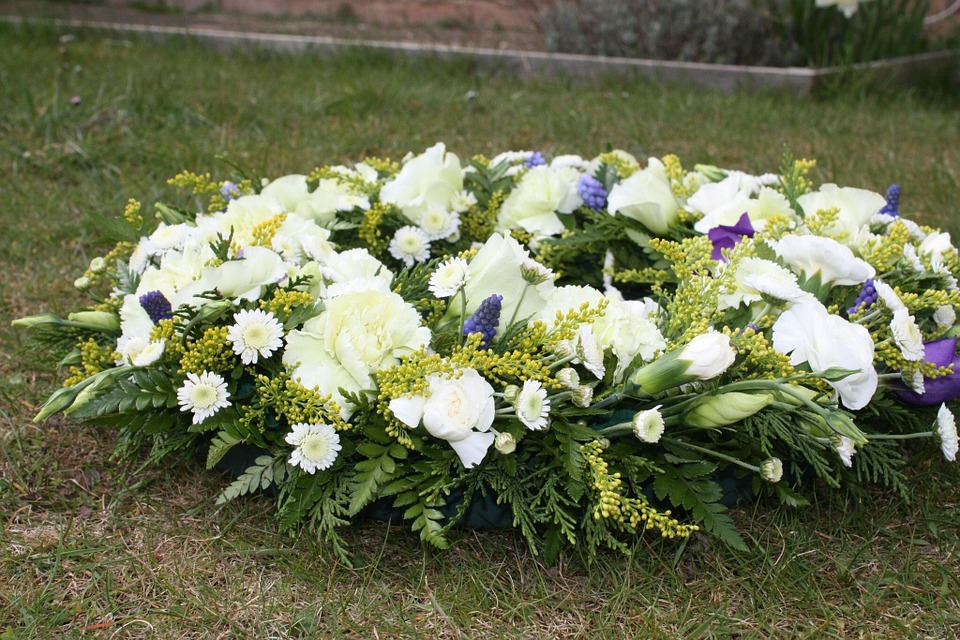Nearly all of us will go to a funeral at some point in our lives. There are situations when someone may need to attend a funeral and is uncertain about what is expected of them. They may harbor concerns about embarrassing themselves by doing something inappropriate. Instead of dreading going to a funeral, you should learn the fundamentals of proper etiquette. This entry will answer many of the questions that you may have if you have never been to a funeral or have not attended one in a long time. Please remember that your main purpose for going to a funeral is to offer your condolences and support to the family of the deceased. Funerals are often conducted in a funeral home, be it in Queens County, NY or elsewhere.
Many wonder what is acceptable attire for a funeral. Although it is no longer socially expected to wear all black, you may still do so. It is important that you never call attention to yourself at the funeral because of what you wear. This means you should most likely avoid bright florals, wild prints and neon colors. It is also not good to dress too provocatively, so do not wear revealing clothing or plunging necklines.
Women should avoid mini-skirts, cropped tops, low-cut shirts, pants or dresses and spandex material. They should accessorize in a simple manner and wear minimal makeup. If you think you will cry, be sure to use waterproof mascara. You may have to walk in grass or uneven paving, so stilettos may be a poor choice. Stick to closed-toe flats or low-heeled shoes. Please do not wear a floppy beach hat. Jewelry should be subtle- no noisy bangles or sparkly necklaces. Wearing anything that makes noise is disruptive and a show of disrespect. Females may don a sleeveless dress with a fitted jacket, sweater or shawl on top.
Men should not wear baseball hats or any clothing that has writing, so no printed T-shirts. Do not wear a vibrant patterned tie unless it is specifically called for. Wearing a conservative suit or tailored pants and a blazer are sound options for most funeral services.
Exceptions to these guidelines do exist. For example, for the funeral of a veteran it is appropriate to dress in military uniform. If yours or the loved one’s religion requires a particular style of dress for funerals, follow those rules. Also, many families consider funerals to be life celebrations and may ask guests to dress in a more festive way. If so, you should respect their request, but still stick understated cuts.
If the funeral is being held in a place of religious worship, follow the dress code of the sanctuary. If you are unsure of what to wear, opt for something that you would wear to a job interview. You can wear plain sunglasses for an outdoor funeral. Your hair should be styled as simply and naturally as possible. Do not wear scents or perfumed lotions as some people are very allergic and will sneeze and cough throughout the funeral. Cover tattoos.
Another issue that you may have is knowing what to say to the bereaved family. Even if it makes you uncomfortable, ignore the desire to avoid talking to the family members of the departed. You do not need to say much, but say something. It is always good to briefly express your sympathy and say a few kind words in an even tone. If you are close to the family, you can talk with them longer. You should never make negative or insulting comments at a funeral, or trivialize the person’s death.
About two weeks after the funeral, call a family member of the loved one and invite him or her over for coffee or tea. You can also give them a plant or tree to place in the yard in memory of the deceased. Sending a note to show the bereaved family that you are thinking of them is another kind gesture. You may also wish to have funeral flowers delivered to the funeral home as early as possible on the day of the service. Any flower is acceptable and most florists are experienced with funerals and will assist you in selecting an arrangement. You may send a floral arrangement by yourself or work with others to get a bigger, more elaborate arrangement. If you send flowers, attaching a short sympathy note is appropriate. Please keep in mind that some families request that you make a charitable donation in lieu of flowers and you should heed them, sending a note informing them that you contributed. Please do not tell them the specific amount of money you gave.
